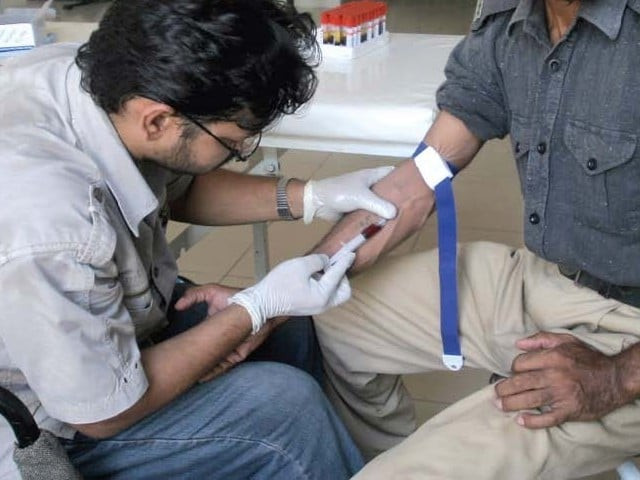Hepatitis spurt sets off alarm in Pindi
Over 1,300 cases have been unearthed in recent screenings

At least 1,086 people were diagnosed with hepatitis C during a recent blood screening conducted under the Localised Hepatitis Elimination and Prevention Programme in Rawalpindi.
The increasing number of hepatitis cases in the city has raised significant concerns. Vaccination efforts for hepatitis B and treatment for both hepatitis B and C patients have started.
The screening, which covered 4,725 people in densely populated areas such as Fuji Colony, Pirwadhai, and other adjacent regions, revealed that 226 people have Hepatitis B, while 1,086 individuals have Hepatitis C. Additionally, 20 people were found to be suffering from both hepatitis B and C, bringing the total number of hepatitis cases to 1,332. Among these, eight pregnant women were diagnosed with hepatitis C.
Of the hepatitis B patients, 636 underwent PCR tests, and 21,396 people were vaccinated against hepatitis B. For hepatitis C, 258 patients with a viral load exceeding 2,000 have begun receiving free treatment, while 276 patients with a lower viral load are under observation.
District Health Authority’s CEO Dr Anser Ishaq expressed concern over the rapid increase in hepatitis cases. "In response to this alarming rise, we have initiated an awareness campaign and started providing free treatment facilities under the Localised Hepatitis Elimination and Prevention Programme as a precautionary measure," he said.
The prevalence of hepatitis in Fauji Colony has been alarming, with roughly one in every five or six residents affected by the disease, according to LHEAP's assessments.
A pivotal aspect of the campaign has been community engagement, exemplified by the formation of a support group under the LHEAP programme. One such gathering drew 50 women, who were educated about preventive measures against hepatitis B and C, along with guidance on treatment options for those afflicted. Complimentary services, including free hepatitis testing and vaccinations, were provided post-discussion, emphasising the programme's holistic approach to combatting hepatitis.
Poor hygiene practices among residents and the negligence of cleanliness standards in local establishments have exacerbated the situation.
More than 15 million people in Pakistan live with hepatitis B or C, according to experts, with the overwhelming majority unaware about how the viral infection can be prevented, treated and, in the case of Hepatitis C, cured.
The World Health Organization (WHO) has set a target of eliminating hepatitis B and C as a public threat by 2030 by 90% reduction in new chronic infections, 65% reduction in mortality compared with a scenario in which interventions would continue at the current level.
Published in The Express Tribune, June 8th, 2024.



















COMMENTS
Comments are moderated and generally will be posted if they are on-topic and not abusive.
For more information, please see our Comments FAQ